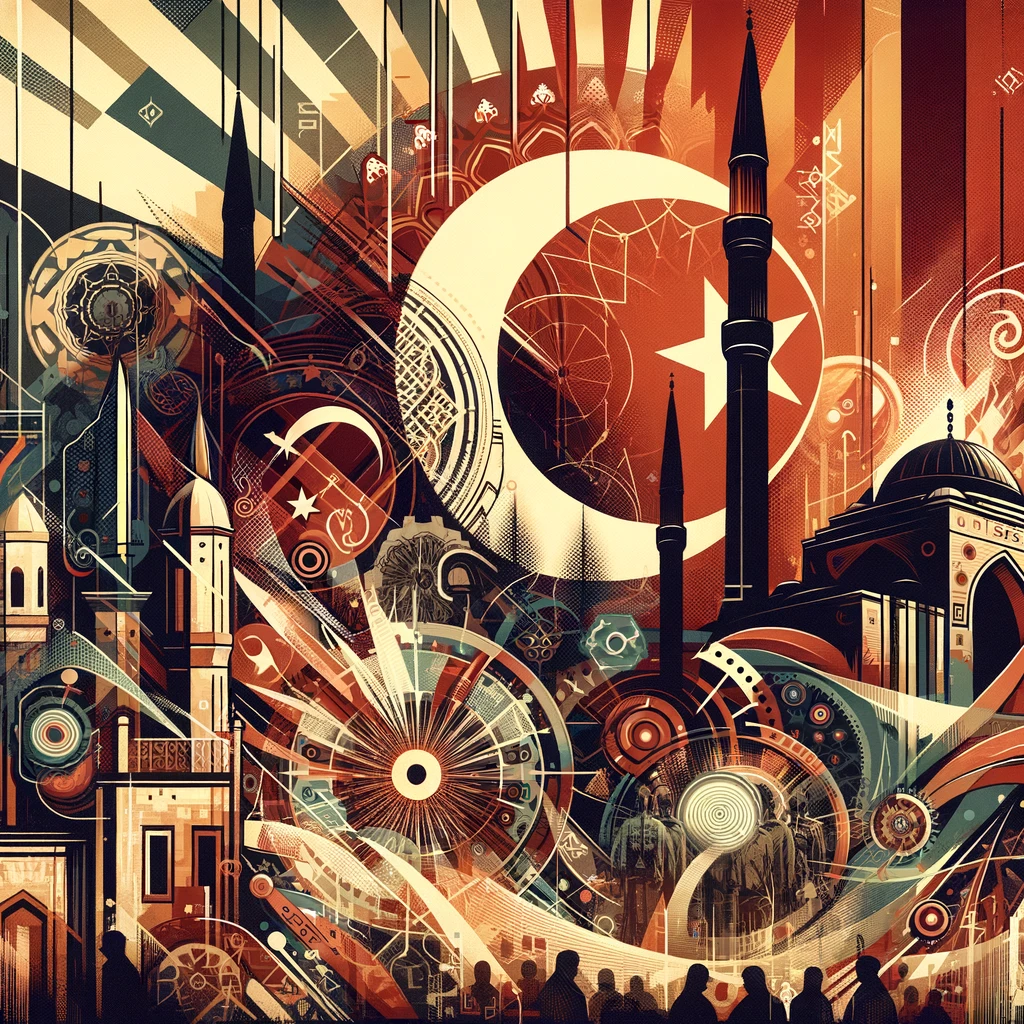Utanmaz Türklere is a phrase that sparks both curiosity and debate, reflecting deeply on Turkish society and culture. Translated as “Shameless Turks,” this term has evolved over time, finding its way into various facets of media, politics, and daily conversations. But what exactly does it mean, and why is it still relevant today? In this article, we will explore the historical origins of Utanmaz Türklere, its cultural impact, and the role it plays in shaping Turkish identity in modern times.
Cultural Concepts of Honor and Shame in Turkey
At the heart of understanding Utanmaz Türklere is the cultural significance of honor (namus) and shame (utanma) in Turkey. In Turkish society, these values are not just social constructs but are deeply woven into the moral fabric of daily life. Honor dictates how individuals and families are perceived, while shame acts as a deterrent to behavior that might compromise that honor. Utanmaz Türklere is often used to criticize those who, in the eyes of society, have disregarded these values, acting without shame.
In many ways, Utanmaz Türklere serves as a tool for social regulation, a way for communities to express disapproval of those who violate moral codes. It reflects the collective responsibility Turks feel toward maintaining social norms.
Historical Origins of Utanmaz Türklere
The historical roots of Utanmaz Türklere can be traced back to the late Ottoman Empire and the early Turkish Republic. During these periods, societal norms were rapidly changing due to modernization efforts led by figures like Mustafa Kemal Atatürk. As Turkey transitioned from a traditional, Islamic-based society to a secular, modern republic, cultural tensions arose. Utanmaz Türklere emerged as a phrase to critique those perceived to be disregarding long-standing values and customs.
Throughout history, Utanmaz Türklere has been used in various contexts, from political rhetoric to social commentary. It was not just a criticism of individual behavior but a broader critique of societal shifts that some felt undermined traditional Turkish identity.
Evolution of Utanmaz Türklere in Turkish Society
As Turkish society continued to modernize, the phrase Utanmaz Türklere adapted to reflect new concerns. In the mid-20th century, it was frequently used in political discourse to criticize opposition parties or government policies. Today, it appears in everyday conversations, media, and even humor, serving as a reflection of how Turkey grapples with issues of morality and modernity.
Contemporary Use of Utanmaz Türklere
In today’s Turkey, Utanmaz Türklere is used in multiple ways. It can be seen in political satire, where it critiques both sides of the political spectrum. It is also used in media to discuss social issues like corruption, dishonesty, or actions that go against societal values. The flexibility of the term allows it to remain relevant, whether in a light-hearted, satirical context or in serious discussions about national identity.
Impact of Utanmaz Türklere on Turkish Identity
Utanmaz Türklere plays a significant role in shaping Turkish identity. For many, it reflects a shared understanding of what it means to be Turkish—rooted in honor, family values, and respect for tradition. However, as society continues to evolve, so too does the interpretation of this phrase. Younger generations might use it more humorously or dismissively, while older generations may still view it as a serious accusation.
In a country that is constantly balancing between tradition and modernity, Utanmaz Türklere encapsulates the cultural push and pull of Turkish identity. It is a reminder that, even in an age of globalization, local values and traditions still hold sway over how individuals and their actions are judged.
Utanmaz Türklere in Media and Pop Culture
Media and pop culture have embraced Utanmaz Türklere in recent years. In Turkish films, television series, and literature, characters are often depicted as “shameless” when they act outside of societal expectations. For example, in popular TV dramas, characters who betray their families or engage in corrupt activities are labeled as Utanmaz Türklere.
In comedy, the phrase is often used to satirize political leaders or social elites who appear to act without regard for public opinion. By using Utanmaz Türklere, comedians highlight the disconnect between the actions of the powerful and the moral expectations of the average citizen.
Reclaiming Utanmaz Türklere: A Modern Movement
Interestingly, there has been a movement in modern Turkey to reclaim the phrase Utanmaz Türklere. Rather than using it solely as a criticism, some groups have begun to embrace the term as a way to defy societal expectations. In this context, Utanmaz Türklere is used to describe individuals who challenge outdated norms and push for progressive change.
This reclamation of the term can be seen in social media, where younger Turks use it to describe themselves proudly when engaging in activism or challenging traditional roles. It reflects a broader shift in Turkish society, where many are reevaluating the importance of honor and shame in the modern world.
Global Perceptions and Misunderstandings
Outside of Turkey, the phrase Utanmaz Türklere can easily be misunderstood. Without a deep understanding of Turkish culture, non-Turkish speakers might interpret the term as purely negative, failing to see its historical and cultural nuances. In reality, the term carries both negative and positive connotations, depending on how it is used and who is using it.
This highlights the importance of cultural sensitivity when interpreting phrases like Utanmaz Türklere. As global audiences are exposed to more Turkish media through streaming platforms and social media, it’s crucial to understand the cultural context behind such phrases to avoid misinterpretation.
The Role of Social Media in Shaping Perception
Social media has played a significant role in shaping modern perceptions of Utanmaz Türklere. Platforms like Twitter, Instagram, and TikTok have given users the ability to share their views on the term, often leading to viral discussions. Hashtags related to Utanmaz Türklere trend regularly, with people using the term in memes, posts, and videos.
Through social media, the phrase has taken on new meanings, sometimes used humorously or ironically to poke fun at traditional values. However, it has also sparked serious debates about Turkish identity, freedom of expression, and the role of tradition in a rapidly modernizing society.
The Future of Utanmaz Türklere in Turkish Society
As Turkey continues to evolve, so too will the phrase Utanmaz Türklere. Its meaning will likely shift as new generations reinterpret it in light of changing social, political, and cultural landscapes. What remains clear is that the phrase will continue to play an important role in conversations about Turkish identity and values.
While some may see Utanmaz Türklere as a relic of the past, others will continue to use it as a tool for social commentary and self-reflection. The future of the term lies in its ability to adapt to new contexts while retaining its core significance in Turkish culture.
Conclusion: The Ongoing Relevance of Utanmaz Türklere
In conclusion, Utanmaz Türklere is more than just a phrase—it is a window into Turkish society, history, and identity. Whether used to critique immoral behavior, challenge societal norms, or celebrate defiance, the phrase holds a powerful place in Turkish discourse. As Turkey navigates its path between tradition and modernity, Utanmaz Türklere will remain a vital part of its cultural lexicon.
FAQs
What does “Utanmaz Türklere” mean?
Utanmaz Türklere” translates to “Shameless Turks” and is used to critique behaviors that are seen as lacking honor or shame.
Is “Utanmaz Türklere” considered offensive?
It can be, depending on the context. For some, it is a harsh criticism, while others may use it humorously or ironically.
How has the meaning of “Utanmaz Türklere” changed over time?
The meaning has evolved, with younger generations reclaiming the phrase in positive or humorous ways, while older generations may still view it as a serious accusation.
Is “Utanmaz Türklere” still relevant today?
Yes, the phrase is still used in media, pop culture, and everyday conversation, reflecting ongoing debates about Turkish identity and societal values.
How can people promote more inclusive language in Turkish society?
Promoting inclusive language involves understanding the cultural origins of phrases and using them in ways that foster respect and understanding, rather than reinforcing stereotypes.


